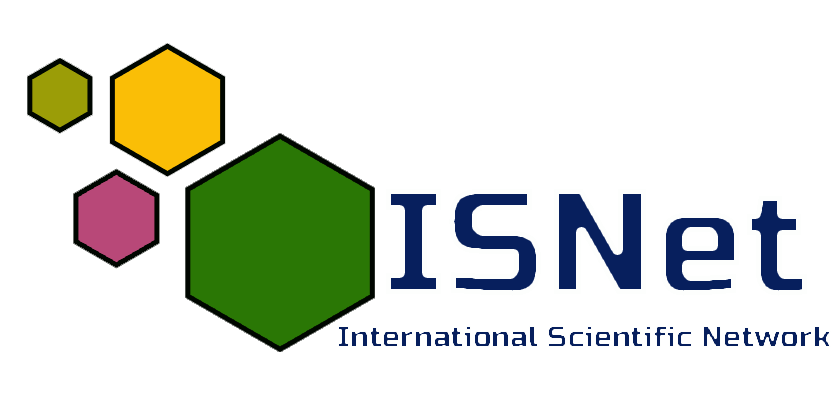Studying Students' Knowledge of the Benefits, Challenges, and Applications of Big Data Analytics in Healthcare
DOI:
https://doi.org/10.59615/ijie.2.1.40DOR:
https://dorl.net/dor/20.1001.1.27831906.2022.2.1.5.4Keywords:
Big Data Benefits Challenges Analysis Healthcare KnowledgeAbstract
The purpose of this study was to evaluate the students' familiarity from different universities of Mashhad with the benefits, applications and challenges of Big Data analysis. This is a cross-sectional study that was conducted on students of different fields, including Medical Engineering, Medical Informatics, Medical Records and Health Information Management in Mashhad-Iran. A questionnaire was designed. The designed questionnaire evaluated the opinion of students regarding benefits, challenges and applications of Big Data analytics. 200 students participated and participants' opinions were evaluated descriptively and analytically. Most students were between 20 and 30 years old. 43.5% had no work experience. Current and previous field of study of most of the students were HIT, HIM, and Medical Records. Most of the participants in this study were undergraduates. 61.5% were economically active, 54.5% were exposed to Big Data. The mean scores of participants in benefits, applications, and challenges section were 3.71, 3.68, and 3.71, respectively, and process management was significant in different age groups (p=0.046), information, modelling, research, and health informatics across different fields of studies were significant (p=0.015, 0.033, 0.001, 0.024) Information and research were significantly different between groups (p=0.043 and 0.019), research in groups with / without economic activity was significant (p= 0.017) and information in exposed / non-exposed to Big Data groups was significant (p=0.02). Despite the importance and benefits of Big Data analytics, students' lack of familiarity with the necessity and importance is significant. The field of study and level of study does not appear to have an effect on the degree of knowledge of individuals regarding Big Data analysis. The design of technical training courses in this field may increase the level of knowledge of individuals regarding Big Data analysis.
Downloads
References
• Acharjya, D. P., & Ahmed, K. (2016). A survey on big data analytics: challenges, open research issues and tools. International Journal of Advanced Computer Science and Applications, 7(2), 511-518.
• Alharthi, A., Krotov, V., & Bowman, M. (2017). Addressing barriers to big data. Business Horizons, 60(3), 285-292.
• Archenaa, J., & Anita, E. M. (2015). A survey of big data analytics in healthcare and government. Procedia Computer Science, 50, 408-413.
• Belle, A., Thiagarajan, R., Soroushmehr, S. M., Navidi, F., Beard, D. A., & Najarian, K. (2015). Big data analytics in healthcare. BioMed research international, 2015.
• Gharachorloo, N., Nahr, J. G., & Nozari, H. (2021). SWOT analysis in the General Organization of Labor, Cooperation and Social Welfare of East Azerbaijan Province with a scientific and technological approach. International Journal of Innovation in Engineering, 1(4), 47-61.
• Manogaran, G., Lopez, D., Thota, C., Abbas, K. M., Pyne, S., & Sundarasekar, R. (2017). Big data analytics in healthcare Internet of Things. In Innovative healthcare systems for the 21st century (pp. 263-284). Springer, Cham.
• Nahr, J. G., Nozari, H., & Sadeghi, M. E. (2021). Green supply chain based on artificial intelligence of things (AIoT). International Journal of Innovation in Management, Economics and Social Sciences, 1(2), 56-63.
• Nazari, E., Norouzi, S., Aldaghi, T., Rasoulian, M., Shahriari, M. H., Kheirdoust, A., & Tabesh, H. (2021). A Survey of Students’ Attitudes to Big Data Analysis in Iranian Universities. International Journal of Innovation in Engineering, 1(4), 62-71.
• Nozari, H., Fallah, M., Kazemipoor, H., & Najafi, S. E. (2021). Big data analysis of IoT-based supply chain management considering FMCG industries. Бизнес-информатика, 15(1 (eng)).
• Srinivasan, U., & Arunasalam, B. (2013). Leveraging big data analytics to reduce healthcare costs. IT professional, 15(6), 21-28.
Published
How to Cite
Issue
Section
License
Copyright (c) 2022 Elham nazari, Maryam Edalati Khodabandeh, Ali Dadashi, Tahmineh Aldaghi, Marjan Rasoulian, Hamed Tabesh

This work is licensed under a Creative Commons Attribution 4.0 International License.










